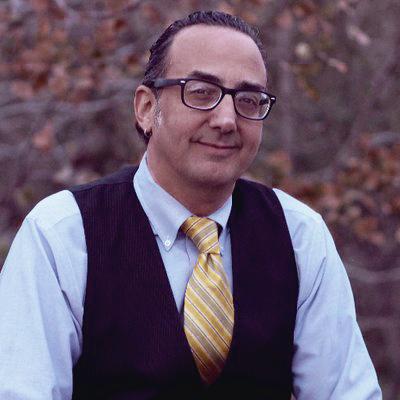Saying ‘farewell’ to an incredible 16-year career, and embarking on a new one
My name is Vincent Schilling. I am Akwesasne Mohawk, an enrolled member of the Saint Regis Mohawk Tribe. I am also a former lieutenant in the U.S. Army as well as the Executive Vice President of Schilling Media, Inc. a Native and veteran-owned Native media and media relations company founded by myself and my wife, Delores Schilling.
When I left the amazing organization known as Indian Country Today, I expressed my farewell to the organization by making a video highlighting some of my wonderful experiences over the years.
Here is the transcription to the video:
[Vincent Schilling:] “Hello, I am Vincent Schilling, Indian Country Today correspondent and we are here Today in Arlington, Virginia.”
[Narration:] Back in 2006, I was working as a freelancer for Indian Country Today. I was an eager journalist — admittedly a bit green — but excited for what lay before me in the world. I had been to a few powwows and other Native events, but a phone call by Ray Ruiz would change the course of my life.
He was the chief of the Golden Eagles Hotshots, a Native forest fire fighting crew, and they were in North Carolina fighting a forest fire. Ruiz asked me on the phone, ‘Hey Vincent, want to come and report on what we’re doing?’ I called my then editor, Ken Polisse to ask. He approved my first traveling assignment.
The rest has been a whirlwind in the world of Indian Country news. I started out as a freelancer for Indian Country Today when it was just a newspaper — literally a handheld newspaper that was mailed to readers.
So much has changed since then. I had a camera as well as a video camera with tapes, a microphone and a portable light, and a pocket audio recorder. I was a one-man show for years, putting a piece of tape on the ground to find my spot to interview tribal leaders, senators, artists and Native youth.
My camera eventually also shot video which made things a little easier but I still had to work hard to create the news for years. I’ve had so many highlights and I’ve met so many iconic figures over the years — such as Wayne Newton, Deb Haalland, Wes Studi and Billy Mills — and the list goes on and on.
As a member of the White House press pool, I covered what seems like a hundred stories of the Obamas. And a highlight? Getting a personal invite from the White House to cover artwork by Native artists being placed in the then Vice President Biden’s home.
A funny story, the Secret Service had inspected my laptop when I was going through the gate and though I had been asked by the White House to write the press announcement for Vice President Biden, they had accidentally flipped my laptop screen from landscape to portrait.
I might look calm from the pool house, but I was frantic inside. But it all worked out. Other stories that stand out in my coverage over the years, of course, were the water protectors of Standing Rock who were opposing the Dakota Access Pipeline — as well as the viral stories I wrote on Native actors walking off the set of Adam Sandler’s Ridiculous Six.
For the previous incarnation of Indian Country Today or ICMN, I served as the sports, powwows and arts and entertainment editor. It was an amazing journey, and of course so many in Indian Country held their collective breath as the Oneida Indian Nation decided to cease operations and Indian Country Today went dark.
When the Oneida Indian Nation decided to transfer Indian Country Today to the National Congress of American Indians, a family member of Dennis Banks had called to tell me personally that he had passed away.
Thus, I offered to write the story as a volunteer. Though I had officially lost my previous job, I volunteered my time for several months with the National Congress of American Indians, writing stories until ICT came back to life.
In my approximate 16 years as a journalist and editor, I reflect with awe as to the world of news I experienced. One highlight stands out when I spoke with civil rights icon, Congressman John Lewis, who told me, ‘Use your pen, use your camera, to continue to tell the truth.’ He also told me, ‘to get into good trouble.’ I think I followed that advice as best I could.
[Vincent Schilling:] ‘What can I continue to do as a journalist to help spread the word?’
[Congressman John Lewis:] ‘Use your pen, use your camera, to continue to tell the truth. Continue to tell the truth.’ (Applause) ‘Get in trouble, good trouble, necessary trouble.’
As I move on to a new chapter of my life — wishing the best for everyone listening and watching — I say to you all for the last time: ‘This is Vincent Schilling, reporting for Indian Country Today.’
Because it’s time to make some life adjustments, I am now working on a book on Native residential schools. And I say this with a sense of exhilaration and excitement in addition to gracious well-wishes for all of my former colleagues.

Vincent Schilling, Akwesasne Mohawk, is the founder and editor of Native Viewpoint. With nearly 20 years of experience as a Native journalist and former member of the White House Press Pool, Vincent works to uplift underrepresented voices in the world of media and beyond. Follow Vincent on YouTube.com/VinceSchilling, on Twitter at @VinceSchilling or on any other of his social media accounts by clicking on any of the icons below.
Support Native Viewpoint a Native multimedia website, by clicking here.